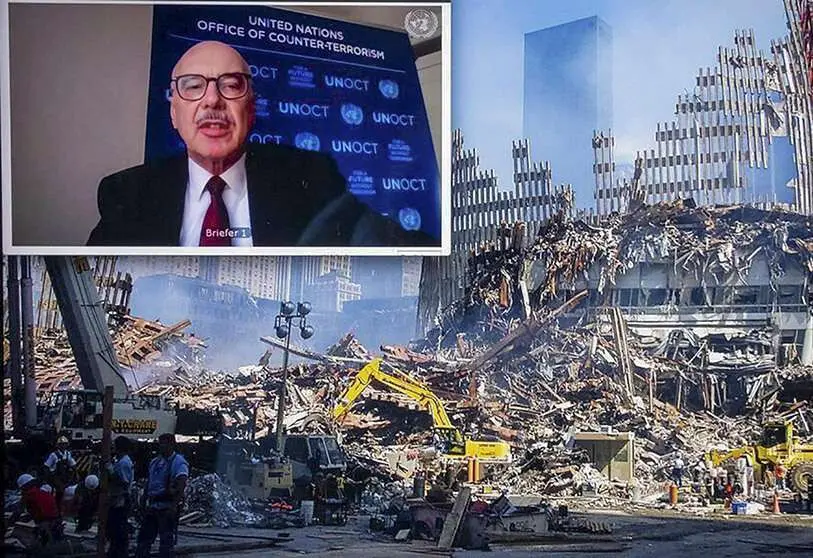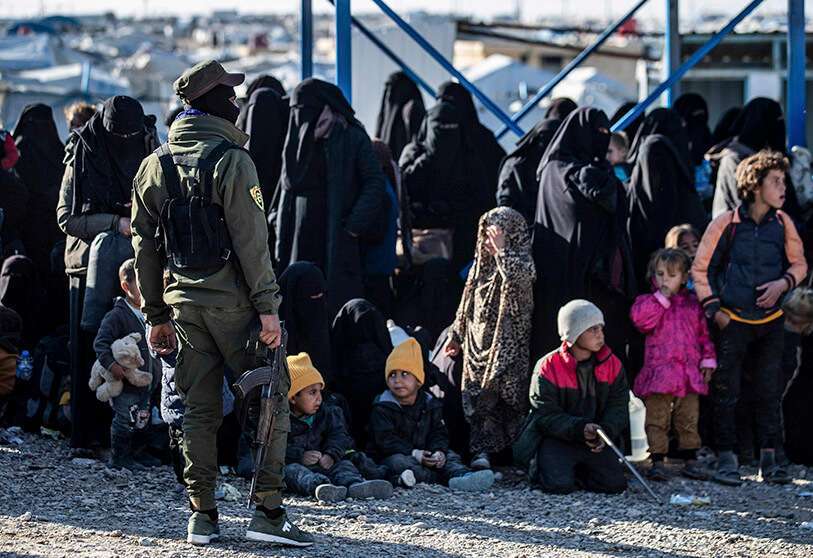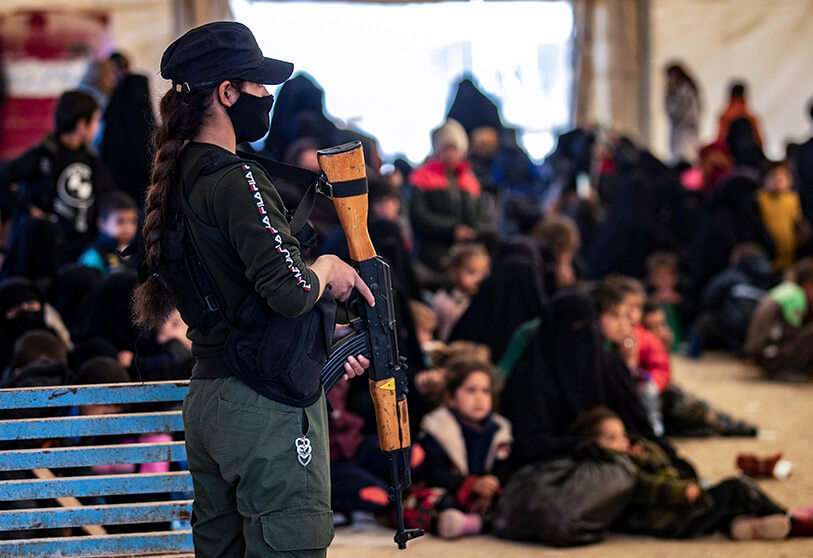UN warns of new Daesh terrorist threat

The UN Under-Secretary-General for Counter-Terrorism, Vladimir Voronkov, said that the threat to international peace and security from Daesh is "increasing again", and that the terrorist group is using the consequences of the pandemic as bait for radicalisation and recruitment of new members.
The Russian diplomat further warned that terrorists maintain the ability to move and operate even across porous borders. As the international community continues to grapple with the remnants of the 'caliphate', the head of the Counter-Terrorism Bureau explained that some 10,000 remnants of Daesh - mostly in Iraq - are aiming for a protracted insurgency, posing a significant "global and long-term threat".
Voronkov himself added that it would be "crucial" for member states to remain focused and united to stamp out terrorism, and that Daesh is organised "in small cells that hide in desert and rural areas, and cross the border between the two countries to attack". Although it has lost its self-proclaimed 'caliphate' in Iraq and Syria, the organisation "continues to carry out attacks in both countries and maintains the ability to operate across unprotected borders". It "may even regain the ability to orchestrate attacks around the world this year", he acknowledged.

During the conference, the UN counter-terrorism chief admitted that the social, economic and political consequences produced by COVID-19 may increase radicalisation and facilitate recruitment work. "The risk of exposure to Daesh propaganda and incitement has continued to grow among people, especially among young people, spending more time at home and online," Voronkov told Security Council members.
The Russian diplomat was briefing the UN body on the latest efforts by the United Nations to counter the dangers of Daesh and other terrorist groups. The warning comes in the context of Resolution 2368, which calls on the Council to adapt to evolving terrorist threats, and on member states to strengthen measures to block terrorist financing, limit terrorist travel and prevent terrorists from obtaining weapons.
"Almost two years after the territorial defeat of Daesh, some 27,500 foreign children are still at risk in camps in northeastern Syria, including some 8,000 children from some 60 different countries," Voronkov noted. The diplomat also highlighted the precarious situation of the majority of women and children with links to the fighters, pointing to the dire humanitarian situation in detention centres and IDP camps, "especially in Al-Hol".
In this regard, Voronkov noted the words of UN Secretary-General António Guterres, who urged "voluntary repatriation of adults and children stranded in Iraq and Syria" to the 57 states with nationals inside the camps. US Ambassador Jeffrey DeLaurentis said that the global threat from Daesh will continue to grow as long as the authorities in these countries refuse to repatriate their citizens. Moreover, experts have warned that these centres are a perfect breeding ground for extremism and radicalisation.

During the conference, the executive director of the UN Counter-Terrorism Committee, Michèle Coninsx, stressed the "volatile and complex" security environment that is highlighted by the generational challenges of terrorist groups. Coninsx pointed to the pandemic as the "most urgent challenge" as, in her view, it has served as a catalyst for a host of underlying issues.
Voronkov pointed out that this year marks the 20th anniversary of Resolution 1373, a mechanism adopted by the UN Security Council itself after the September 11 attacks as a measure of global cooperation against terrorism. The Russian diplomat stressed the need to put an end to the "scourge of terrorism" through cyber and physical counter-terrorism and by addressing "the threat posed by its regional affiliates, especially in Africa".
The head of the UN Counter-Terrorism Office said: "We must urgently resolve the problem of Daesh members, lest our failure enable the group's resurgence.








